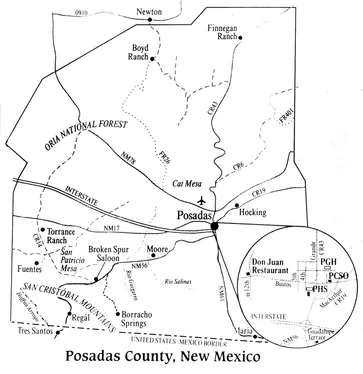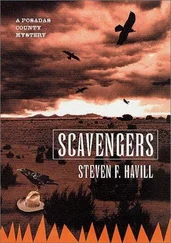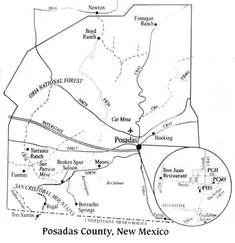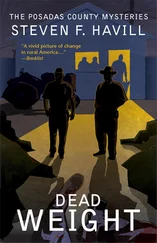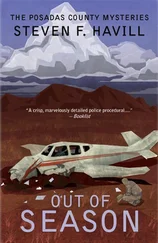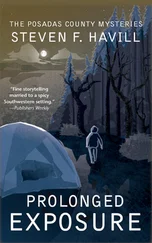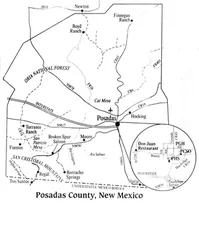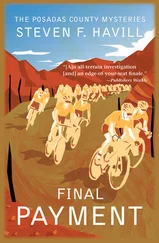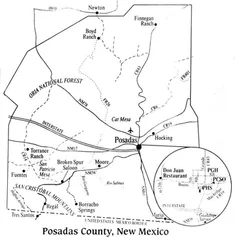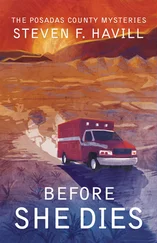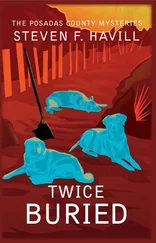Steven Havill - Statute of Limitations
Здесь есть возможность читать онлайн «Steven Havill - Statute of Limitations» весь текст электронной книги совершенно бесплатно (целиком полную версию без сокращений). В некоторых случаях можно слушать аудио, скачать через торрент в формате fb2 и присутствует краткое содержание. Год выпуска: 2011, Издательство: Poisoned Pen Press, Жанр: Полицейский детектив, на английском языке. Описание произведения, (предисловие) а так же отзывы посетителей доступны на портале библиотеки ЛибКат.
- Название:Statute of Limitations
- Автор:
- Издательство:Poisoned Pen Press
- Жанр:
- Год:2011
- ISBN:нет данных
- Рейтинг книги:3 / 5. Голосов: 1
-
Избранное:Добавить в избранное
- Отзывы:
-
Ваша оценка:
- 60
- 1
- 2
- 3
- 4
- 5
Statute of Limitations: краткое содержание, описание и аннотация
Предлагаем к чтению аннотацию, описание, краткое содержание или предисловие (зависит от того, что написал сам автор книги «Statute of Limitations»). Если вы не нашли необходимую информацию о книге — напишите в комментариях, мы постараемся отыскать её.
Statute of Limitations — читать онлайн бесплатно полную книгу (весь текст) целиком
Ниже представлен текст книги, разбитый по страницам. Система сохранения места последней прочитанной страницы, позволяет с удобством читать онлайн бесплатно книгу «Statute of Limitations», без необходимости каждый раз заново искать на чём Вы остановились. Поставьте закладку, и сможете в любой момент перейти на страницу, на которой закончили чтение.
Интервал:
Закладка:
“That’s good. We’re on the way. Tell Tom to stay put unless they come out of the church and it looks as if they’re going to take off.”
“You got it.”
She handed the phone to Gastner and pulled the mike off the clip.
“Three oh eight, three ten. We copy the info on Bert’s Place. We’re a minute or so behind you.”
“Ten four.” Torrez’s reply in his habitual radio voice was not much more than a murmur. “Bert’s Place,” the radio moniker for the Iglesia de Nuestra Señora in Regál, where Father Bertrand Anselmo was the priest, was one way to keep scanner aficionados-and perhaps the two car thieves if they had a radio-in the dark about location. Torrez’s voice broke the silence once again.
“Three oh two, sit tight.”
“Now that’s bizarre,” Gastner said. He reached out and braced one hand against the dash when Estelle braked hard enough to make the tires howl as they turned onto State 56, the highway leading southwest the twenty-three miles to Regál Pass and the little village beyond on the Mexican border. “Why would two car thieves hole up in the church? That’s not good news.”
“No, sir,” Estelle said. She accelerated hard, and far ahead of them, they could see the taillights of the sheriff’s vehicle as she closed the gap between them.
Chapter Five
La Iglesia de Nuestra Señora was one of the most frequently photographed landmarks in Posadas County, preserved on film by thousands of tourists. Most travelers found the small church charming and quaint, and they then went away relieved that they didn’t have to attend services there.
Three-foot-thick adobe walls, tall and narrow windows recessed with eighteen-inch windowsills, and carved ceiling beams that had been salvaged more than a century before from an Indian ruin in northern Mexico encased the cool interior in musty silence.
Cottonwood planks had been intricately carved and painted for the altar, with a heavy communion railing polished to a soft, reflective shine by generations of hands. The same cottonwood had been used for each of the twelve stations of the cross, the carvings nestled deep in nichos sunken into the adobe walls.
With a little cooperative planning, the twelve straight-backed pews, six on each side of a narrow aisle, could seat sixty worshipers-nearly twice the total population of the village of Regál.
That neat package, immaculately maintained and painted so white that a blast of sun through one of the narrow windows could reflect from the opposite wall like a flashbulb, had never known a utility. For evening services, light came from beeswax candles made by one of the parishioners. Burning piñon and juniper in the plump potbellied stove that stood in the center of the long east wall chased the deep chill that settled into the building when it stood empty. The black single-walled stovepipe reached up precariously a dozen feet before piercing through the ceiling thimble.
Estelle let her memories of the little church form a blueprint in her mind as they sped southwest. There were no hiding places in the church-no attic, no sanctuary. She glanced at the clock. There was also no congregation at this hour, and for that she was thankful. Not long before, her mother and aunt had knelt within those stout walls during the 5:00 p.m. service, listening to Father Anselmo and inhaling the fragrance of juniper boughs. There would be another service at nine o’clock that Christmas Eve, and, just because Father Anselmo loved it so, another at midnight.
As they crested Regál Pass, Estelle could see a scattering of lights off to the right, through the mist and light rain. The village of Regál nestled against the slope of the San Cristóbals, facing Mexico to the south. The land fell away to the flat, empty Mexican desert, a vista of endless stunted brush, cacti, and arroyos by day, a giant black hole at night.
A thousand yards southeast of the village, the Regál border crossing was harshly illuminated by a fleet of lights. In recent months, the fence had been upgraded, the chainlink and razor wire shining in the light of the sodium vapors.
There wasn’t enough traffic to operate the border crossing at night. As a concession, a large gravel-surfaced lot had been provided so that folks could park their RVs and grab a nap until the customs people arrived at 6:00 a.m. Or, they could walk a hundred yards to the church and find quiet comfort there. The iglesia was never locked-its mammoth, carved doors had never known a hasp.
“Nice night,” Gastner muttered. “You want to lay odds on what happened?”
“What do you think?” Estelle leaned forward, still picturing the church and its parking lot.
“I think that they decided not to take the interstate, and took the state road without knowing where the hell it went,” Gastner said. “I think they’re lost. The kind of genius who would steal a 1982 Dodge in Indiana as a getaway car would have trouble with a road map.”
“Maybe so.”
“Three oh two, ten twenty.” Sheriff Robert Torrez’s voice was barely audible, and Estelle reached down to turn the radio volume up.
“I’m on water tank road,” Deputy Pasquale replied. “Mike’s here with me.” The radio barked squelch twice as Torrez acknowledged by keying the microphone.
“There’s a midnight service planned?” Gastner asked.
“I think so,” Estelle said. “Father Anselmo does a service at seven over in María, and then comes back here for one at nine and then again at midnight. Someone will keep the fire going.”
“Emilio Contreras, probably,” Gastner said, and Estelle felt a pang of worry. No church enjoyed more tender, persistent maintenance than that provided to Nuestra Señora by Contreras, himself closing on eighty years old. The old man cleaned, painted, and patched, working all day, every day, except Sundays. Despite using an aluminum walker to support a bad hip, Contreras walked the three hundred yards from his home in Regál to the church.
Before the border fence upgrade, Regál had been a favorite resting spot for illegals, and the unlocked church had been a convenient hostel. Even a hard cottonwood pew made a welcome bed after a desert crossing on foot. Various law enforcement agencies had tried to convince Father Anselmo over the years that a locked door would be a small concession. Small concession or not, no lock had marred the finish since 1826, when the door had first been hung.
Tom Pasquale’s unit was parked on the gravel access road to the village water tank, high on the flank of the mountains behind Regál, with Deputy Mike Sisneros’s well off the highway’s shoulder. Sheriff Torrez turned into the narrow lane and stopped door-to-door with the deputy’s vehicle. Estelle pulled onto the shoulder behind Mike’s SUV and killed the lights. By the time she had shrugged into her slicker, Pasquale had gotten out. He rested an elbow comfortably on the spotlight housing of Torrez’s Expedition.
“Nothing going on that I can see,” he said. “The chief’s car was parked there when I cruised through. I didn’t even pull into the parking lot. Didn’t want to spook ’em. You want to use my glasses?” He reached into his vehicle and pulled the bulky, military-surplus night glasses out, offering them to Estelle, but she shook her head.
“That’s okay,” she said. “The thing that concerns me is Emilio Contreras.” She turned and looked down the hill. It was dark enough that she couldn’t see smoke from the church’s stovepipe, rainy enough that the faint glow from candles wouldn’t illuminate the windows. “They get this far, and now they find that the border’s closed.”
“Not the sharpest tools in the box,” Torrez said.
“Maybe they’re thinking about spending the night until the border opens,” Tom said.
Читать дальшеИнтервал:
Закладка:
Похожие книги на «Statute of Limitations»
Представляем Вашему вниманию похожие книги на «Statute of Limitations» списком для выбора. Мы отобрали схожую по названию и смыслу литературу в надежде предоставить читателям больше вариантов отыскать новые, интересные, ещё непрочитанные произведения.
Обсуждение, отзывы о книге «Statute of Limitations» и просто собственные мнения читателей. Оставьте ваши комментарии, напишите, что Вы думаете о произведении, его смысле или главных героях. Укажите что конкретно понравилось, а что нет, и почему Вы так считаете.
